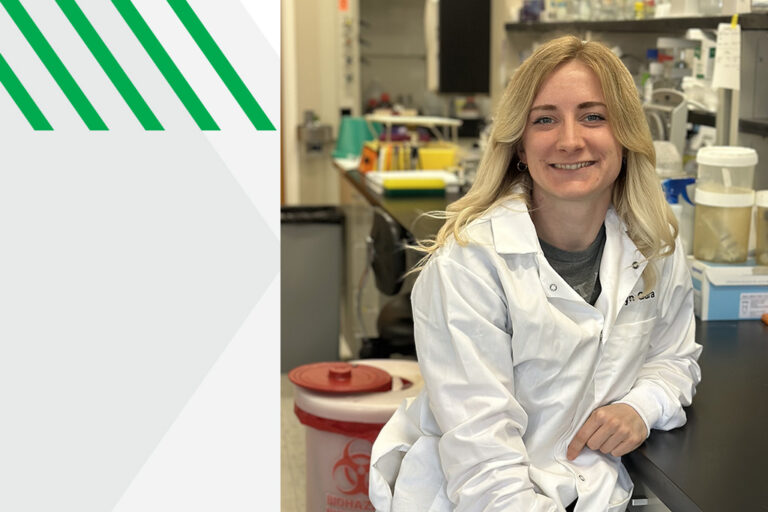Kindred Spirits
UND’s Indians Into Medicine program gets a boost from a ‘semi-retired’ supporter
“Our INMED program is, historically, the outstanding program in the country for training Native American physicians,” says Dr. Charlie Christianson. “So, I said ‘why not?’”

Christianson is referring to the Dr. Charles Christianson INMED Scholarship for Primary Care, a recent scholarship endowment he established with the UND Alumni Association & Foundation to support students in the UND School of Medicine & Health Sciences (SMHS) Indians Into Medicine (INMED) program.
Coinciding with INMED’s 50th anniversary in 2023, the new endowment looks to support one INMED student per academic year, says Christianson, explaining his interest in the program.
“When I came here in 2001, I became aware of the INMED program, which I view as extremely important intellectually and emotionally for North Dakota and the country,” says the “mostly retired” former SMHS Associate Dean for Clinical Education, who took advantage of the State of North Dakota’s 50 percent match on scholarship gifts to public institutions. “I really felt the tug. The INMED students are just a great bunch of young people and their drive to make a difference in people’s lives is evident from day one of their training.”
Although the engineer’s son is not from North Dakota originally, he admits that he found UND refreshing after several years in the Washington, D.C., area. A self-described “child of the sixties” who took an early interest in health disparities between populations, public health, and the social and political determinants of health, Christianson says that he was also impressed at the strength of UND’s Indigenous and rural health programs, all of which ran parallel to his own interests.
So he stuck around…for a quarter century.
“When I went to medical school, I was very concerned about social and political issues,” adds Christianson, who earned his Master of Public Health degree and his M.D. from Johns Hopkins University in Baltimore. “My experience in the public health school there set me on my path of clearly recognizing the importance of primary care, public health, and community medicine.”
This is why Christianson took immediately to lecturing UND medical students not only on communication skills and professionalism, but the social determinants of health.
He found a particularly receptive audience in INMED.
“Those are the things I really love talking to the students about,” he says. “And I hope some of the INMED students see me as a bit of a kindred spirit. I just went to the North Dakota Medical Association meeting and there were a lot of mid-career docs there who were my students 10, 15 years ago. I said to some of them that it’s like being a parent watching your kids grow up – seeing the seeds of their potential as INMED students growing into great doctors is particularly gratifying.”
Also attracting Christianson to UND more than two decades ago was the uniqueness of the medical curriculum’s group-based, patient-centered learning model.
“That teaching method, with small, patient-centered groups, was and is really very innovative,” he beams. “It’s like nothing I’d ever done before. I’d always been educated and taught in sort of a traditional lecture model, and this is much, much better. UND was way ahead of what anybody else was doing, and it was really fun.”
Concluding that the future of healthcare is in interprofessional, team-based patient care, Christianson notes that UND was ahead of the curve there too.
“The solo doctor, by him- or herself out there, is just not the way it’s going to be,” he says. “It’s going to be teams with multiple different specialists and different health professions. And the UND medical school has been training to this model for 10 or 15 years now. That was cutting edge too.”
All of this “really put UND on the map,” says Christianson. And he’s hoping that it’s all just the beginning for the UND School of Medicine & Health Sciences.
“North Dakotans are modest – they don’t like to brag,” he concludes. “But there are a lot of great things going on here, with the INMED program being one of the best. So, I’m happy to support and help bring attention to the medical education of our outstanding Native American students. And, in choosing primary care, they can make a world of difference to the health of families and communities. In fact, based on my conversations with those I’ve had the privilege of teaching, they already are.”



